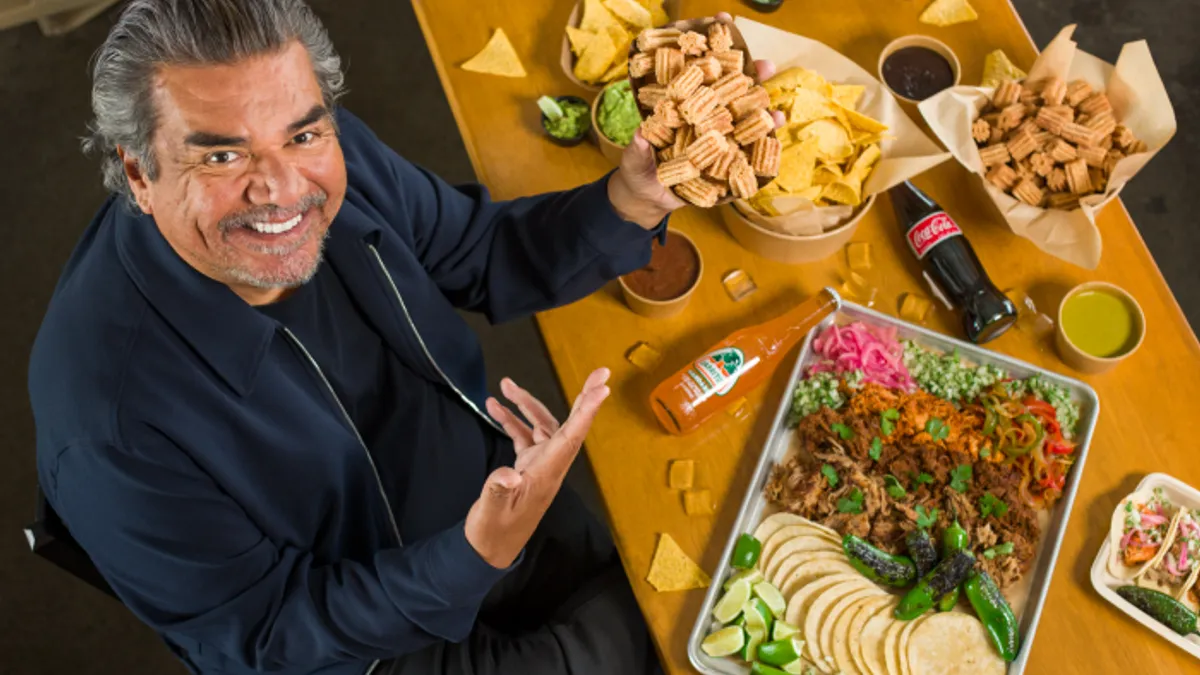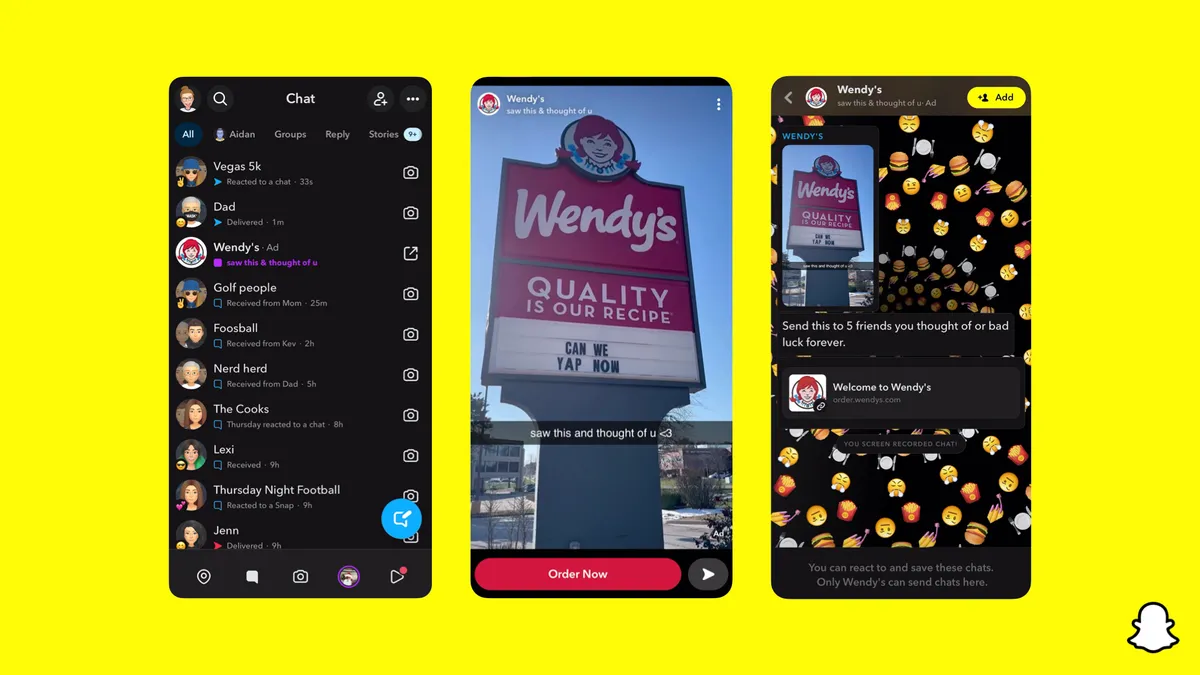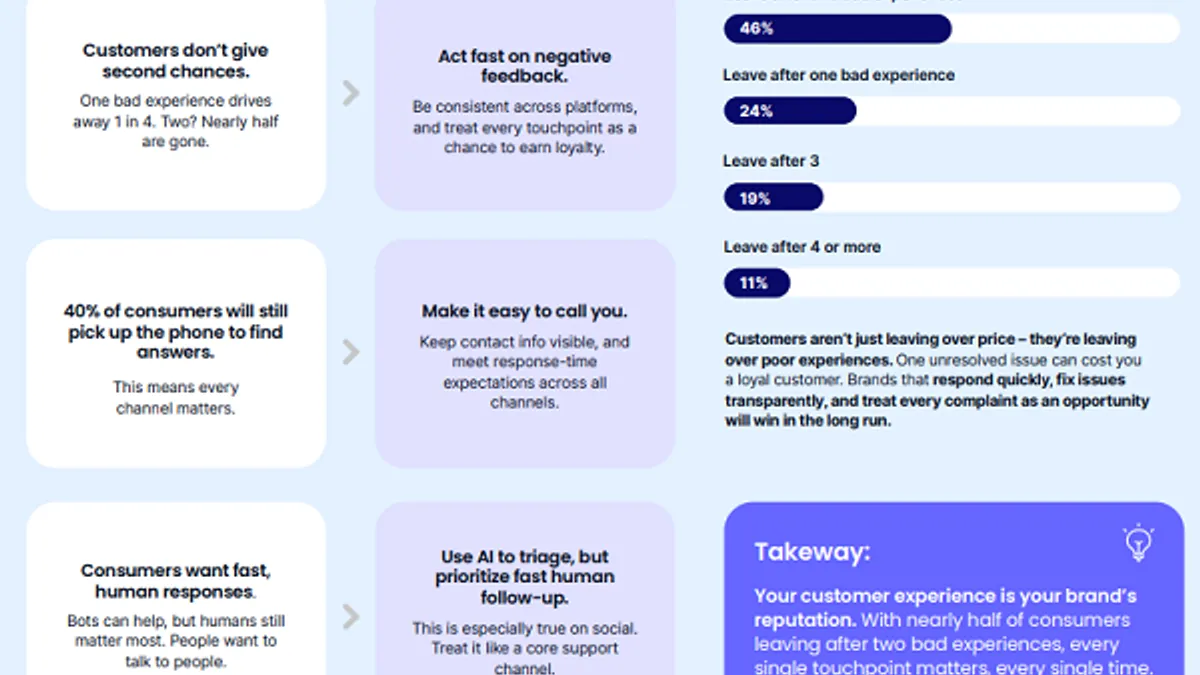Ghost kitchens — delivery-only cooking facilities with no customer-facing areas — could represent a $1 trillion global market by 2030, per market researcher Euromonitor. A sizable part of that market will likely be in the form of virtual restaurant brands without physical locations that have their own challenges and opportunities when it comes to marketing.
Virtual brands have proliferated on third-party apps and come from a variety of sources. Alongside smaller restaurants that have added virtual offerings and nationwide casual dining chains that have entered the space are virtual restaurant brands including HotBox By Wiz, featuring a "munchie menu" curated by rapper Wiz Khalifa, and the forthcoming George Lopez Tacos, a taqueria from the comedian-actor.
HotBox By Wiz and George Lopez Tacos are partnerships with Nextbite, a startup founded in 2019 that operates more than a dozen virtual brands that aim to help restaurants better utilize underused kitchen capacity — which increasingly became a priority during the height of the pandemic. Nextbite is operated by Ordermark, the restaurant tech company that received $120 million in Series C funding from SoftBank in 2020.
"I think it's an inevitable evolution for these brands to be standalone."

Brian Furano
Vice president of celebrity and brand licensing, Nextbite
The majority of virtual restaurant brands have generic-sounding names, like The Burger Den and The Wing Experience, and seek to tap into specific cravings as consumers browse increasingly crowded third-party apps like Uber Eats and DoorDash that limit the opportunities for traditional marketing. Nextbite's offerings are designed to cut through the noise by adding celebrity names to the mix.
"The reason we target these celebrities [is] we're really looking for people with an authentic connection to food," said Brian Furano, vice president of celebrity & brand licensing at Nextbite. "The celebrity brings that awareness, that influence, and fans that care about what they stand for and that have been with them for a long time."
Lopez, a multihyphenate star in the entertainment world, has opened a handful of Chingon Kitchen restaurants and branched out into salsa and brewing, making him a good fit for Nextbite. With HotBox By Wiz, Nextbite can tap into the fan base of one of rap's bestselling stars — offering a "munchie menu" that plays into Khalifa's identity as a cannabis connoisseur (without infusing the food with marijuana or CBD).
George Lopez Tacos will be offered nationwide on June 8 through restaurant partners in Atlanta, Dallas, Denver, Los Angeles, New York City, San Diego, San Francisco, Seattle and elsewhere, while HotBox By Wiz is available in more than 30 cities.
A 'huge asset' on third-party apps
On third-party platforms, celebrity partners serve as "dime-sized" logos that are a "huge asset" for generating sales in a crowded marketplace, Furano said. Beyond the celebrity partners themselves, Nextbite works with the platforms to ensure their brands are featured prominently, with limited-time offers, promotions and forthcoming merchandise bundles that attract consumer attention.
For restaurant operators, partnering with Nextbite to offer the celebrity concepts can help bridge the gap between service that is still feeling the effects of the pandemic and a return to full-swing, pre-pandemic norms. Some operators see virtual restaurant brands as a transition tool to get back up to speed, while some see their future as a combination of house brands and virtual restaurants, both on-premise and through delivery, Furano explained.
"I think there's going to be some unique hybrids [where] you'll walk into some of your favorite existing restaurants and be able to grab some of these celebrity concepts or well-performing virtual concepts on-premise," he said.
And while third-party platforms continue to be the norm for both Nextbite and most virtual restaurant brands, moving to first-party control — as a way to get a handle on costs, accumulate transactional data and allow for more traditional marketing applications — could be in the cards for well-performing celebrity brands.
"[Third-party platforms] all have intricacies and there's different ways to tell your story within each of those platforms, and the exciting part of rolling these brands out is being able to be creative with how you market… But I think it's an inevitable evolution for these brands to be standalone," Furano said.























